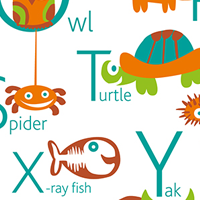Bài tập Unit 1 lớp 10 A day in the life of ... hệ 7 năm
Bài tập tiếng Anh Unit 1 lớp 10 A day in the life of...
Bài tập tiếng Anh lớp 10 Unit 1: A Day in The Life of có đáp án được biên soạn dựa theo nội dung sách giáo khoa Tiếng Anh lớp 10 tập 1 unit 1 A day in the life of, với các bài tập trắc nghiệm + tự luận đa dạng, phong phú bao quát tất cả các vấn đề ngữ âm, từ vựng, ngữ pháp, đọc hiểu và viết giúp các em học sinh ôn luyện kiến thức hiệu quả. Mời các thầy cô và các em tham khảo, download tài liệu miễn phí.
* Xem thêm Hướng dẫn học Unit 1 lớp 10 tại:
Soạn Unit 1 lớp 10 A Day in the life of ... hệ 7 năm
I. Write the word so that /I/ becomes /i:/ and vice versa.
| /i/ | /i:/ |
| 1. rich | reach |
| 2................... | peak |
| 3. hit | ................... |
| 4. .............. | beat |
| 5. rid | ......................... |
| 6. ............ | sheep |
| 7. live | .................... |
| 8............... | seek |
| 9. sin | .................... |
| 10. chip | ..................... |
II. Match the italicized verbs in column A with their meanings in column B.
| A | B |
| 1. When did the plane take-off? 2. The thieves ran away when the burglar alarm went off 3. Let’s take a break. We’ll go on when you are ready 4. Could you get me up early tomorrow? 5. She laughed and chatted happily with other women. 6. Did anyone see Sue getting on the bus? 7. Suddenly the plane seemed to dip? 8. I have given up trying to understand her. 9. We had trouble putting up the tent in the dark 10. Fire fighters soon put out the fire. | a. building b. move downward c. made stop burning d. leave the ground e. talked in a friendly way f. stopped g. getting into h. get out of bed i. continue j. rang |
III. Complete the passage with the correct form of the verb in the brackets.
There (1)...............(be) three adults and two children in the Bartons. The children are Ben, aged twelve, and little Stella, who is four. Their parents are Andrew and Marion. The other adult is Leslie, who is Andrew's brother. He is twenty-four. They (2)........... (live) in Newcastle, a large city in the north east of England.
On weekday mornings, everyone (3)............(get up) early. Andrew Barton 4).............. (work) for a company which (5).............. (manufacture) computers. He (6)............... (leave) at seven o'clock. He (7)............ (like) to avoid the rush hour, he says. Marion (8)............ (suspect) that really he wants to avoid having breakfast with the children, who (9)............. (be) very noisy.
Ben (10)............... (catch) the school bus at eight-fifteen. Leslie (11).............. (be) at university, studying physics. He lives away from home during term-time, so he (12)............. (avoid) the noise, too.
Stella (13)............ (not go) to school yet, of course. Next year, she (14)............... (start) at the nursery school where Ben used to go. Her mother (15)................. (look) forward to this. as it will mean that she can go back to work. Before her marriage, she (16).............. (live) in London, where she (17)....................(work) for the National Gallery. She (18)............... (hope) to find the same sort of job in Newcastle.
IV. Complete the conversation. Put in the past simple form of the verbs.
Claire : (1)................................... (you/ have) a nice weekend in Paris?
Mark : Yes, thanks. It (2).................. (be) good. We (3)........................ (look) around and then we (4)................ (see) a show. We (5) .....................(not/ try) to do too much.
Claire : What sights (6)...............................(you/ see)?
Mark : We had a look round the Louvre. I (7) .................... (not/ know) there was so much in there.
Claire : And what show (8)........................ (you/ go) to?
Mark : Oh, a musical. I forget the name. I (9).................... (not/ like) it.
Claire : Oh dear. And (10)........................ (Sarah/ enjoy) it?
Mark : No. not really. But we (11).....................(enjoy) the weekend. Sarah did some shopping, too, but I (12)................ (not want) to go shopping.
V. Complete the sentences. Put the verb into the correct form.
1. Trees................more quickly in summer than in winter. (grow)
2. 'Shall I phone at 6:00?' 'No, I...............................dinner at that time. (normally/ cook)
3. We .....................at about 7:00. Couldn't you come an hour later? (usually/ get up)
4. In 1788 he............................his last great work in Vienna. (write)
5. She............................at Kennedy Airport at 2 o'clock this morning. (arrive)
6. I refuse to believe that he....................... the car was stolen. (not know)
7. 'How are you getting on with the book?' At the moment I ............... chapter four. (read)
8. My mother................. all the doors and windows before she goes to bed. (lock)
9. I ....................away most of my old books when 1 moved house. (throw)
10. Scientists.........................some fundamental discoveries in the 18th century. (make)
11. Alice ...................... her mother in London most weekends. (see)
12. 'What's that terrible noise?' 'The neighbors..........................a party.' (have)
13. At the start of his career, Cousteau..................the aqualung, opening the oceans to explorers, scientists, and leisure divers. (invent)
14. ................. durian when you lived in Malaysia? (ever/ eat)
15. Both ancient and recent records show that farmers......................... long hours.(work)
VI. Choose the correct verb form.
1. I'd like to borrow this book. ..................................it yet?
a. Did you read b. Had you read c. Have you read d.Do you read
2. We........................ in this town for a long time. We....................here sixteen years ago.
a. had been/ come b. have been/ came c. were/ came d. are! came
3. No breakfast for Mark, thanks. He..........................breakfast.
a. hasn't eaten b. didn't eat c. isn't eating d. doesn't eat
4. The news came as no surprise to me. I................... for some time that the factory was likely to close.
a. knew b. had known c. have known d. know
5. Fish were among the earliest forms of life. Fish......................on earth for ages and ages.
a. existed b. are existing c. have existed d. exist
6. Glenda ..................... extremely hard when she was a student.
a. worked b. has worked c. was working d. had been worked
7. The World War II .............. in 1939 and ...................in 1945.
a. begins/ ends b. had begun/ ended
c. has begun/ had ended d. began/ ended
8. I..............at the checkout when I ................... a strange-looking man.
a. waited/ noticed b. was waiting/ noticed
c. waited/ was noticing d. was waiting/ had noticed
9. According to the research reports, people usually..................in their sleep 25 to 30 times each night.
a. turn b. are turning c. have turned d. turned. .
10. Homestead High School's football team.......................a championship until last season.
a. has never won b. had never been winning
c. is never winning d. had never won
VII. Complete the conversations using the words in brackets. Put the adverbs in the best place.
1. A: Did you know the man who tried to steal your bag?
B: No, but I .................... him again. (certainly/ recognize / would)
2. A: That was a goal, wasn't it?
B: Yes, the ball .................. the line. (clearly/crossed)
3. A: The weather is a lot better today.
B: It said on the radio it .............. later. (probe/ rain/ will)
4. A: How do we get to Mike's place?
B: I don't know. I ..................... the directions. (didn't/ fully / understand)
5. A: It's quiet here today, isn't it?
B: Yes, the neighbors ............. cut on a Sunday. (usually/are)
6. A: Have you been to this place before?
B: Yes, I .............. as a child. (it/ occasionally/visited)
7. A: Did the computers crash this morning?
B: Yes. but they............... main. (soon/ were/working)
8. A: Your friend's late. Vicky.
B: Rachel...............that we arranged to go out. (forgotten/ has/ obviously)
9. A: Do you know them?
B: Yes, they live in the same street as me but I ............... to them. (never/ have/ spoken)
10. A: Have you finished your homework yet?
B: Yes, I have. But I.................homework. (hate/really)
VIII. Are the adverbs in the right position or not? If they are correct, put a tick. If they are not, write the correct answer.
1. He sings always when he's having a shower. ..........................................
2. I just have bought a new car. ..........................................
3. Normally, we don't worry if the children are late home from school. ...............................
4. He speaks fluently five languages. .........................................
5. Jenny has been appointed recently Professor of Nursing. .........................................
6. I was totally unprepared for the news. ..........................................
7. The traffic isn't usually as bad as it was this morning. .........................................
8. He had been to London never before. .........................................
9. Susan became soon bored with the new toys. ..........................................
10. John frequently was away from home in his new job. ..........................................
11. They are at home these days hardly ever. ..........................................
12. I could never understand why he got so annoyed. ..........................................
13. We had been already given three leaving presents. .........................................
14. Being alone brought her usually a sense of peace. .........................................
15. Jim never phones me. I have always to phone him. .........................................
IX. Read the passage, then choose the correct completion.
Last year I went to Nepal for three months to work in a hospital. When the hospital let me have a few days' holiday, I decided to go into the jungle and I asked a Nepalese guide, Kamal Rai, to go with me. In the jungle there was a lot of wildlife, but we were trying to find big cats, especially tigers. We climbed onto the elephants' backs to get better view, but it is unusual to find tigers in the afternoon because they sleep in the heat of the day. Then, in the distance, we saw a tiger, and Kamal told me to be very quiet. We crept nearer and found a dead deer still bleeding. This was the tiger's lunch! Suddenly. I started to feel very frightened.
We heard the tiger a second before we saw it. It jumped out like a flash of lightning, five hundred kilos plus and four meters long. I looked into its eyes and face, and saw right down the animal's throat. It grabbed Kamal's between its teeth, but I managed to pull Kamal away. One of our elephants ran at the tiger and made it go back into the grass, so we quickly escaped to let the tiger cat its lunch. That night it was impossible to sleep!
1. The writer went to Nepal ..................................
a. for holiday
b. for treatment
c. for business
d. on a visit
2. When having a few days off, he decided to go into............
a. the remote villages
b. the mountains
c. the seaside
d. the tropical forest
3. He wanted to see.....................
a. wildcats
b. tigers
c. wildlife
d. wild animals
4. He felt very frightened when...............................
a. he saw a tiger
b. he saw the tiger's lunch
c. he crept nearer
d. he found a deer
5. The tiger .................................
a. was like a flash of light
b. saw them a second before they saw it
c. jumped out very fast
d. jumped out of the grass at about four meters.
6. Kamal made his escape when ...........................
a. one of the elephants ran at the tiger
b. the tiger went back into the grass
c. the tiger ate its lunch
d. the writer pulled him away
X. Choose the best sentence that can be made from the cues given.
1. last month / my family / spend / summer holiday / villa / sea / hurricane / come
a. Last month when my family was spending our summer holiday in a villa by the sea, and a hurricane comes.
b. When last month, my family was spending our summer holiday in a villa by the sea, a hurricane came.
c. Last month when my family was spending our summer holiday in a villa by the sea, a hurricane came.
d. Last month when my family was spending our summer holiday in a villa by the sea, so a hurricane came
2. sky / suddenly / big black clouds / it / rain / heavily
a. The sky was suddenly covered with big black clouds and it began to rain heavily.
b. The sky is suddenly covered with big black clouds and it began to rain heavily.
c. Because the sky was suddenly covered with big black-clouds so it began to rain heavily.
d. Although the sky was suddenly covered with big black clouds but it began to rain heavily.
3. wind / blow / the sea / waves / high / swallow / sand
a. The wind was blowing from the sea and the waves were so high that they seemed to swallow the sand.
b. The wind was blowing from the sea and the waves were such high that they seemed to swallow the sand.
c. With the wind was blowing from the sea and the waves were so high that they seemed to swallow the sand.
d. Blowing from the sea the wind and the waves were so high that they seemed to swallow the sand.
4. weather forecast / announce / hurricane / media / no people and ships / in the sea / that time
a. Because the weather Forecast had announced the hurricane through the media, therefore there were no people and ships in the sea at that time.
b. Because of the weather forecast had announced the hurricane through the media, there were no people and ships in the sea at that time.
c. Because the weather forecast had announced the hurricane through the media, there were no people and ships in the sea at that time.
d. As the weather forecast had announced the hurricane through the media, there were no any people and ships in the sea at that time.
5. first time / we / see / hurricane / nervous / frightened
a. It was the first time that we saw a hurricane so that we were very nervous and frightened.
b. The first time when we saw a hurricane and we were very nervous and frightened.
c. The first time when we saw a hurricane, that made we were very nervous and frightened.
d. It was the first time when we saw a hurricane so we were very nervous and frightened.
ĐÁP ÁN
I. Write the word so that /I/ becomes /i:/ and vice versa.
| /i/ | /i:/ |
| 1. rich | reach |
| 2..........Pick......... | peak |
| 3. hit | ........heat........... |
| 4. ......bit........ | beat |
| 5. rid | ..........read............... |
| 6. .....ship....... | sheep |
| 7. live | .......leave............. |
| 8.......sick........ | seek |
| 9. sin | ........seen/scene........... |
| 10. chip | ............cheap......... |
II. Match the italicized verbs in column A with their meanings in column B.
1 - d; 2 - j; 3 - i; 4 - h; 5 - e;
6 - g; 7 - b; 8 - f; 9 - a; 10 - c;
III. Complete the passage with the correct form of the verb in the brackets.
1 - are; 2 - live; 3 - get up; 4 - works; 5 - manufactures;
6 - leaves; 7 - likes; 8 - suspects; 9 - are; 10 - catches;
11 - is; 12 - avoids; 13 - does not go; 14 - will start; 15 - is looking;
16 - lived; 17 - worked; 18 - is hoping/ hopes;
IV. Complete the conversation. Put in the past simple form of the verbs.
1 - Did you have; 2 - was; 3 - looked; 4 - saw; 5 - did not try; 6 - did not see;
7 - did not know; 8 - did you go; 9 - did not like; 10 - did Sarah enjoy;
11 - enjoyed; 12 - did not want;
V. Complete the sentences. Put the verb into the correct form.
1 - grow; 2 - normally cook; 3 - usually get up;
4 - wrote; 5 - arrived; 6 - collects; 7 - am reading;
8 - locks; 9 - threw; 10 - made; 11 - sees;
12 - are having; 13 - invented; 14 - did you ever eat; 15 - work
VI. Choose the correct verb form.
1 - c; 2 - b; 3 - d; 4 - b; 5 - c;
6 - a; 7 - d; 8 - b; 9 - a; 10 - d;
VII. Complete the conversations using the words in brackets. Put the adverbs in the best place.
1 - would certainly recognize; 2 - clearly crossed; 3 - will probably rain
4 - did not fully understand; 5 - are usually; 6 - occasionally visited it; 7 - were working soon;
8 - has obviously forgotten; 9 - have never spoken; 10 - really hate;
VIII. Are the adverbs in the right position or not? If they are correct, put a tick. If they are not, write the correct answer.
1 - sings always thành always sings;
2 - V;
3 - V;
4 - has been appointed recently thành has been recently appointed ;
5 - fluently five languages thành five languages fluently ;
6 - V;
7 - V ;
8 - had been to London never before thành had never been to London before;
9 - V;
10 - frequently was thành was frequently;
11 - are at home these days hardly ever thành are hardly ever at home these days;
12 - V;
13 - V;
14 - brought her usually thành usually brought her;
15 - have always thành always have;
IX. Read the passage, then choose the correct completion.
1 - b; 2 - d; 3 - b; 4 - b; 5 - c; 6 - a;
Hướng dẫn dịch
Năm ngoái, tôi đã đến Nepal ba tháng để làm việc trong một bệnh viện. Khi bệnh viện cho tôi nghỉ vài ngày, tôi quyết định đi vào rừng và nhờ một hướng dẫn viên người Nepal, Kamal Rai, đi cùng. Trong rừng rậm có rất nhiều động vật hoang dã, nhưng chúng tôi cố gắng tìm những con mèo lớn, đặc biệt là hổ. Chúng tôi trèo lên lưng voi để quan sát rõ hơn, nhưng việc tìm thấy hổ vào buổi chiều là điều bất thường vì ban ngày chúng ngủ trong nắng nóng. Sau đó, ở phía xa, chúng tôi nhìn thấy một con hổ, và Kamal nói với tôi rằng hãy rất yên lặng. Chúng tôi rón rén lại gần và phát hiện một con hươu chết vẫn còn chảy máu. Đây là bữa trưa của con hổ! Đột ngột. Tôi bắt đầu cảm thấy rất sợ hãi.
Chúng tôi đã nghe thấy tiếng hổ một giây trước khi chúng tôi nhìn thấy nó. Nó nhảy ra như một tia chớp, dài hơn năm trăm kilôgam và dài bốn mét. Tôi nhìn vào mắt và mặt nó, và nhìn thấy ngay cổ họng của con vật. Nó kẹp lấy Kamal giữa hai hàm răng, nhưng tôi đã kéo được Kamal đi. Một trong những con voi của chúng tôi đã chạy vào con hổ và khiến nó quay trở lại bãi cỏ, vì vậy chúng tôi nhanh chóng trốn thoát để cho con hổ ăn trưa. Đêm đó không tài nào ngủ được!
X. Choose the best sentence that can be made from the cues given.
1 - c; 2 - a; 3 - a; 4 - c; 5 - d;
Trên đây là: Bài tập Unit 1 tiếng Anh lớp 10 A day in the life of.. có đáp án. Mời bạn đọc tham khảo thêm nhiều tài liệu ôn tập Tiếng Anh 10 cả năm khác như: Để học tốt Tiếng Anh lớp 10, Đề thi học kì 1 lớp 10, Đề thi học kì 2 lớp 10, Bài tập Tiếng Anh lớp 10 theo từng Unit trực tuyến,.... được cập nhật liên tục trên VnDoc.com.
Để chuẩn bị tốt cho năm học 2022 - 2023 sắp tới, mời quý thầy cô, các bậc phụ huynh và các em học sinh tham gia nhóm Facebook: Tài liệu học tập lớp 10 để tham khảo thêm nhiều tài liệu các môn học khác nhau.










